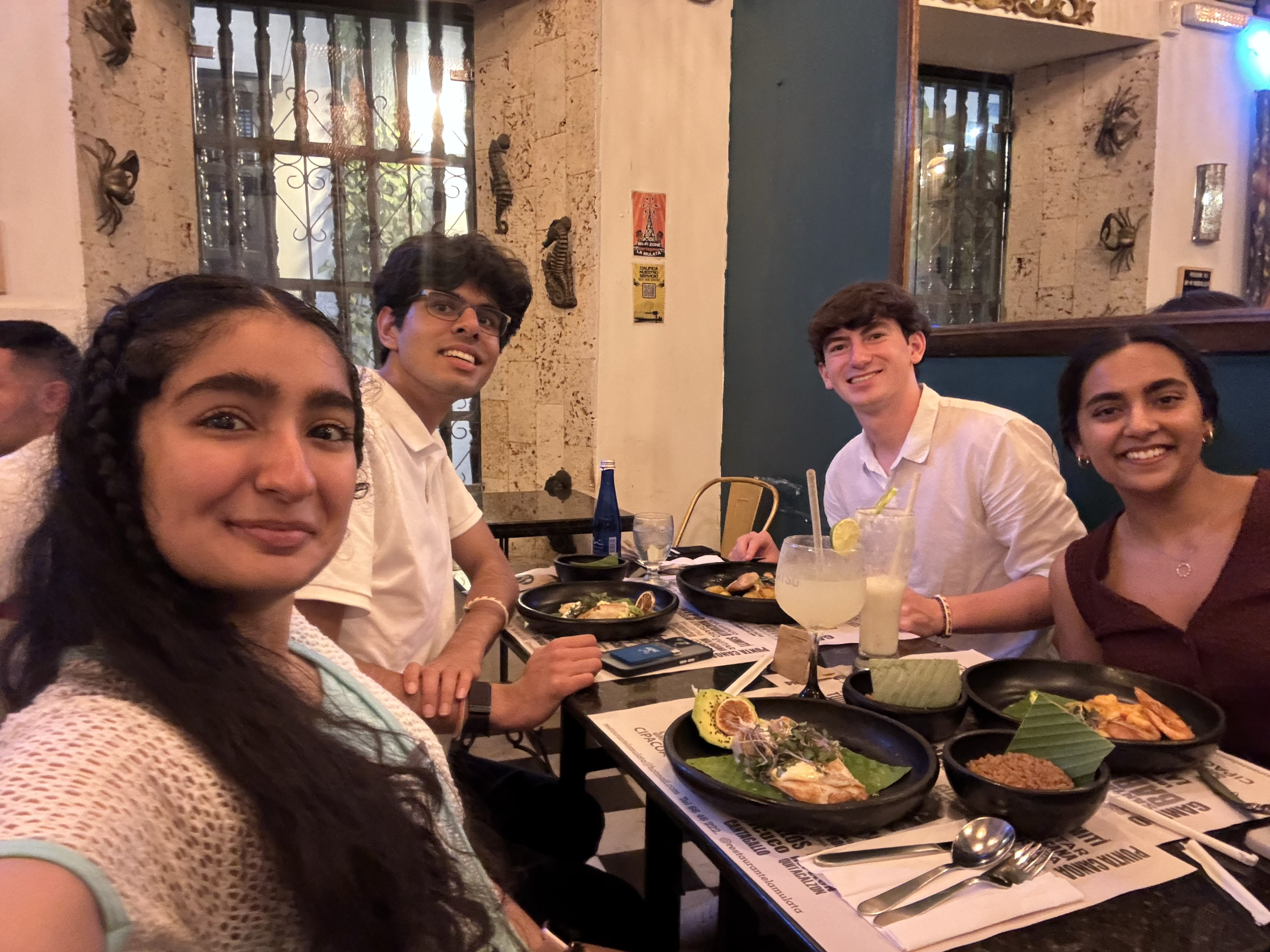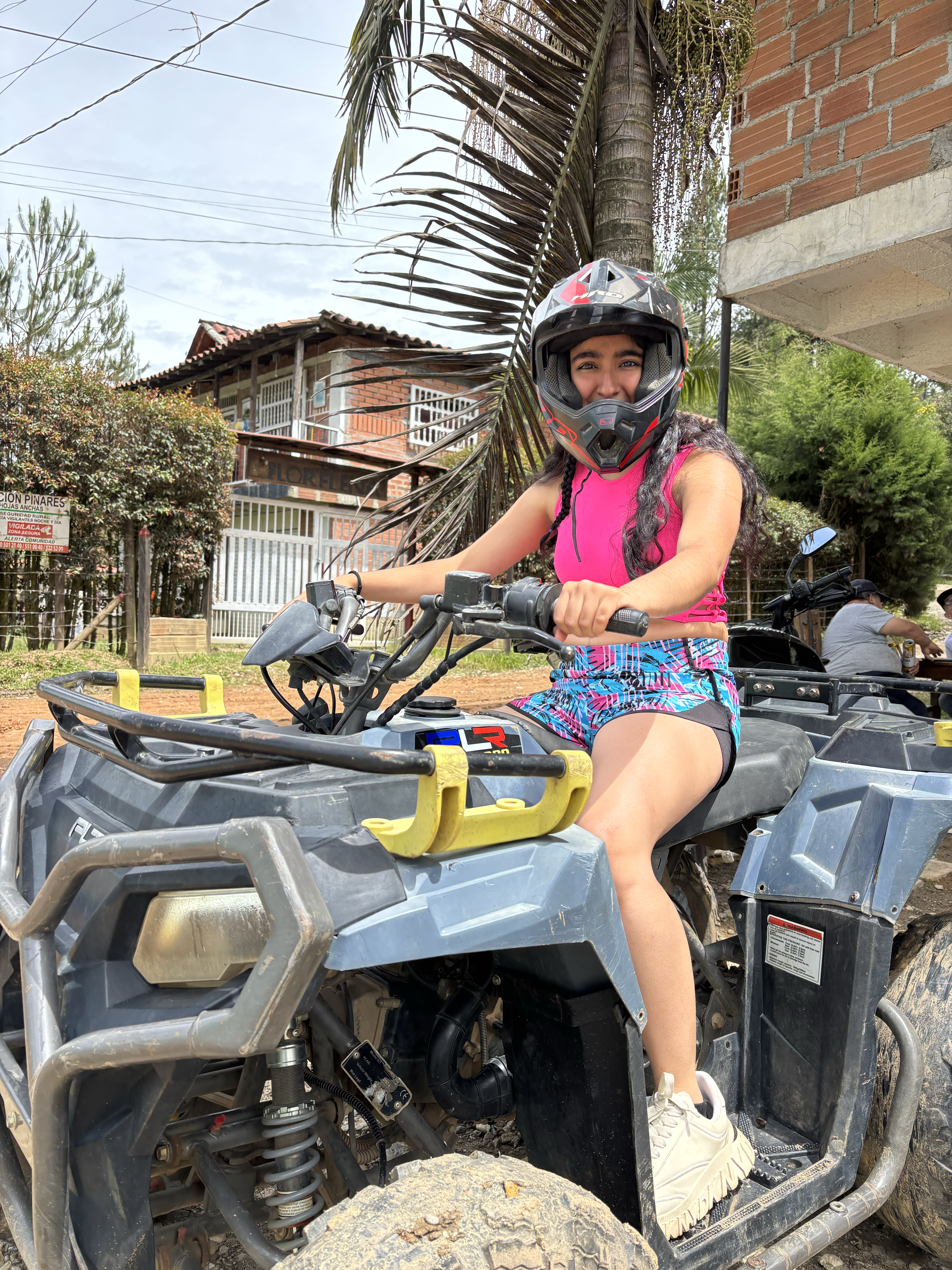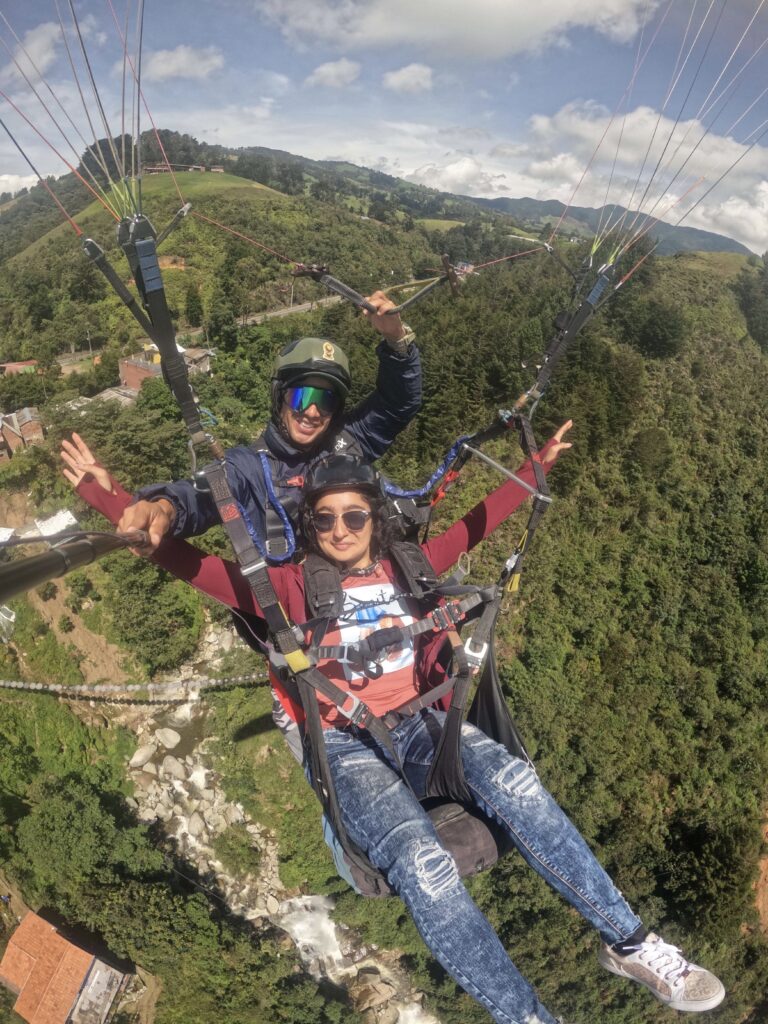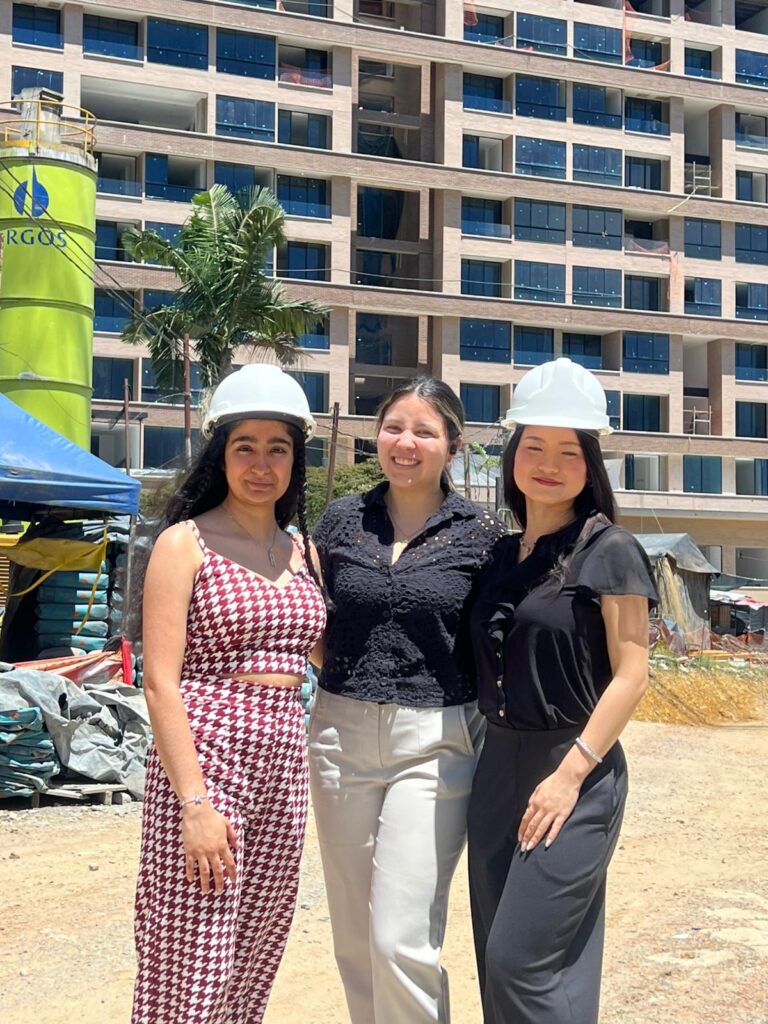
Ishika Narsingani
CAS ’28
Mathematical Economics
GRIP: FinTech in Medellin, Columbia
- ishika7n@sas.upenn.edu
Contact:
Ask Me About…
What it was like to be abroad for the first time, taking only Penn classes while also working in Spanish. My GRIP placement in Medellín was my first extended time living outside the United States, and it pushed me to adapt quickly to a completely new environment both academically and professionally.
I worked in the finance department of a large construction and development company, where my responsibilities included managing detailed Excel spreadsheets, doing light coding to improve their internal database, and visiting active construction sites. Much of my work involved communicating in Spanish, which meant I had to learn industry vocabulary and adjust my communication style to fit local norms. This experience strengthened my language skills and taught me how to navigate professional interactions across cultures.
Outside of work, I embraced the opportunity to immerse myself in Colombian life. I learned salsa and bachata, went paragliding over the mountains, rode ATVs through rugged terrain, and explored small towns on horseback. Balancing my Penn coursework with a Spanish-speaking work environment and an active cultural life taught me time management, adaptability, and resilience.
As a first-generation, low-income student, I understand the financial, logistical, and emotional considerations that can make studying or interning abroad feel intimidating. I can share practical tips on preparing for both the academic and professional sides of the experience, along with advice on building confidence when living and working in a new language.
My Experience Abroad
My GRIP internship in Medellín connected closely to my academic background as a Mathematical Economics major with minors in Statistics & Data Science and Computer Science at Penn. Working in the finance department of a large construction and development company allowed me to apply quantitative and analytical skills from my coursework to real-world problems. Managing detailed Excel spreadsheets to track project budgets, expenses, and cash flows drew directly on my statistical training, while improving the company’s internal database through light coding connected to my computer science studies.
The role also gave me insight into how economic principles translate into large-scale business decisions. I observed how cost structures, cash flow timing, and capital allocation shape the progress of major infrastructure projects. Visiting construction sites made these concepts tangible, bridging the gap between theory and application.
Working primarily in Spanish challenged me to adapt my communication skills to a bilingual professional setting, which is valuable for my long-term goal of working in a globally connected, data-driven finance role. I learned how to explain technical analyses in ways that resonated across cultural and linguistic differences, a skill that will serve me in both client-facing and analytical positions.
This experience reinforced my interest in combining quantitative rigor with problem-solving in real-world contexts. By blending financial analysis, statistical methods, and computational tools, I contributed to meaningful projects while developing skills that align directly with my academic path and professional aspirations in economics, finance, and data science.
Other Highlights
1. Working in Spanish
I completed my internship primarily in Spanish, which improved my language skills and taught me how to communicate technical and financial concepts across cultural and linguistic differences.
2. Applying academic skills in a real-world setting
As a Mathematical Economics major with minors in Statistics & Data Science and Computer Science, I was able to use my quantitative and analytical background in my finance department work. This included managing detailed Excel spreadsheets, tracking project budgets, and writing small pieces of code to improve the company’s internal database.
3. Experiencing the link between finance and infrastructure
Visiting active construction sites gave me a first-hand look at how financial planning and decision-making directly impact project progress, adding a tangible dimension to the economic and statistical concepts I study.
4. Cultural immersion and personal growth
Outside of work, I embraced Colombian culture through salsa and bachata classes, exploring Medellín’s neighborhoods, and traveling to nearby towns. These experiences deepened my cultural awareness and adaptability.
5. Adventure and stepping out of my comfort zone
I took part in activities such as paragliding over the mountains, ATV riding through rugged trails, and horseback riding in the countryside. Each pushed me to try something new and built my confidence in navigating unfamiliar situations.
Together, these highlights reflect how my GRIP experience combined professional development, academic application, cultural immersion, and personal growth in ways that will continue to shape my future goals.



